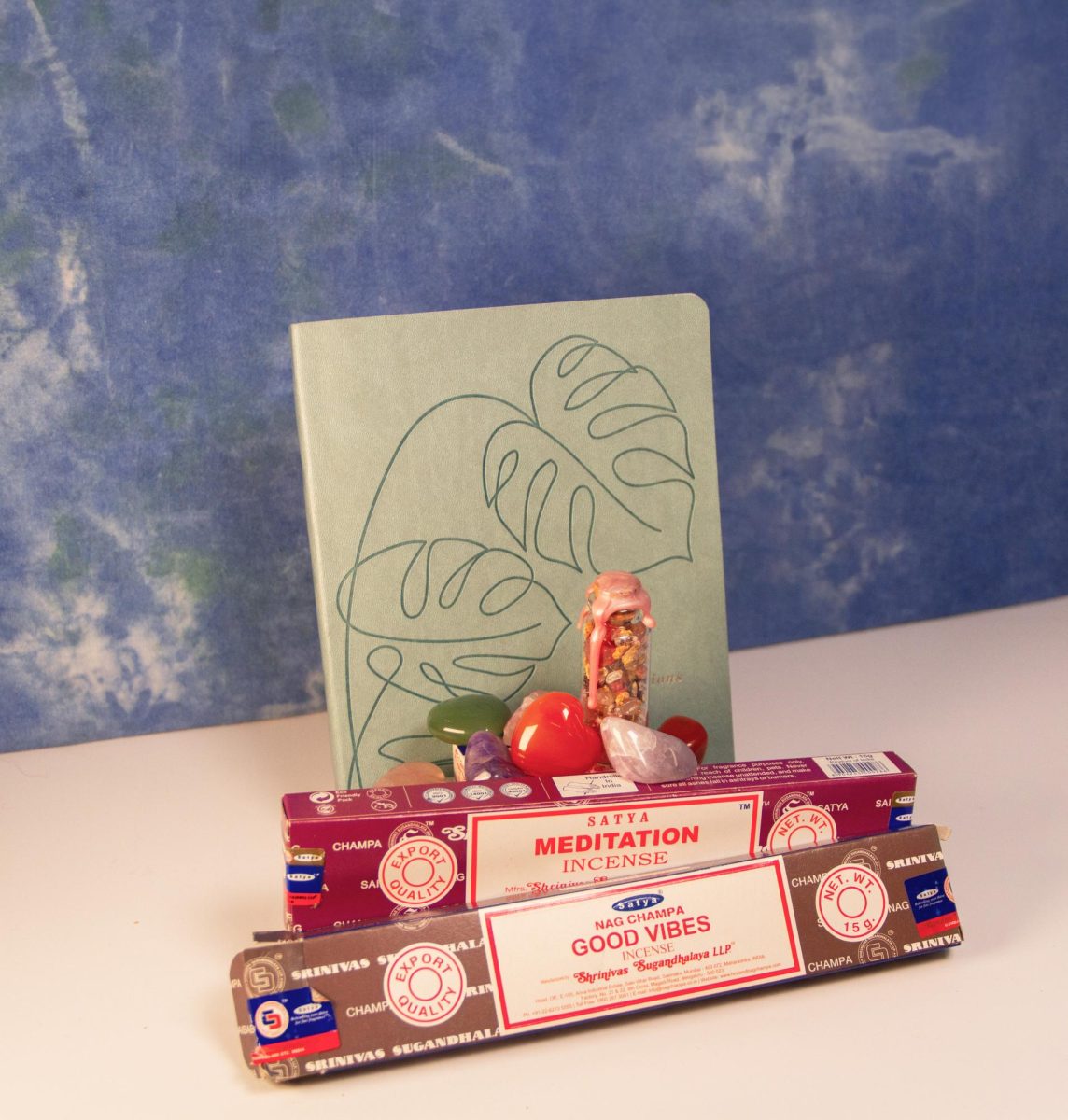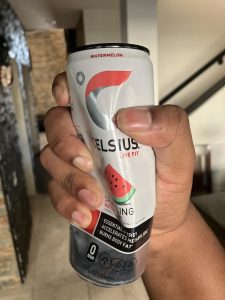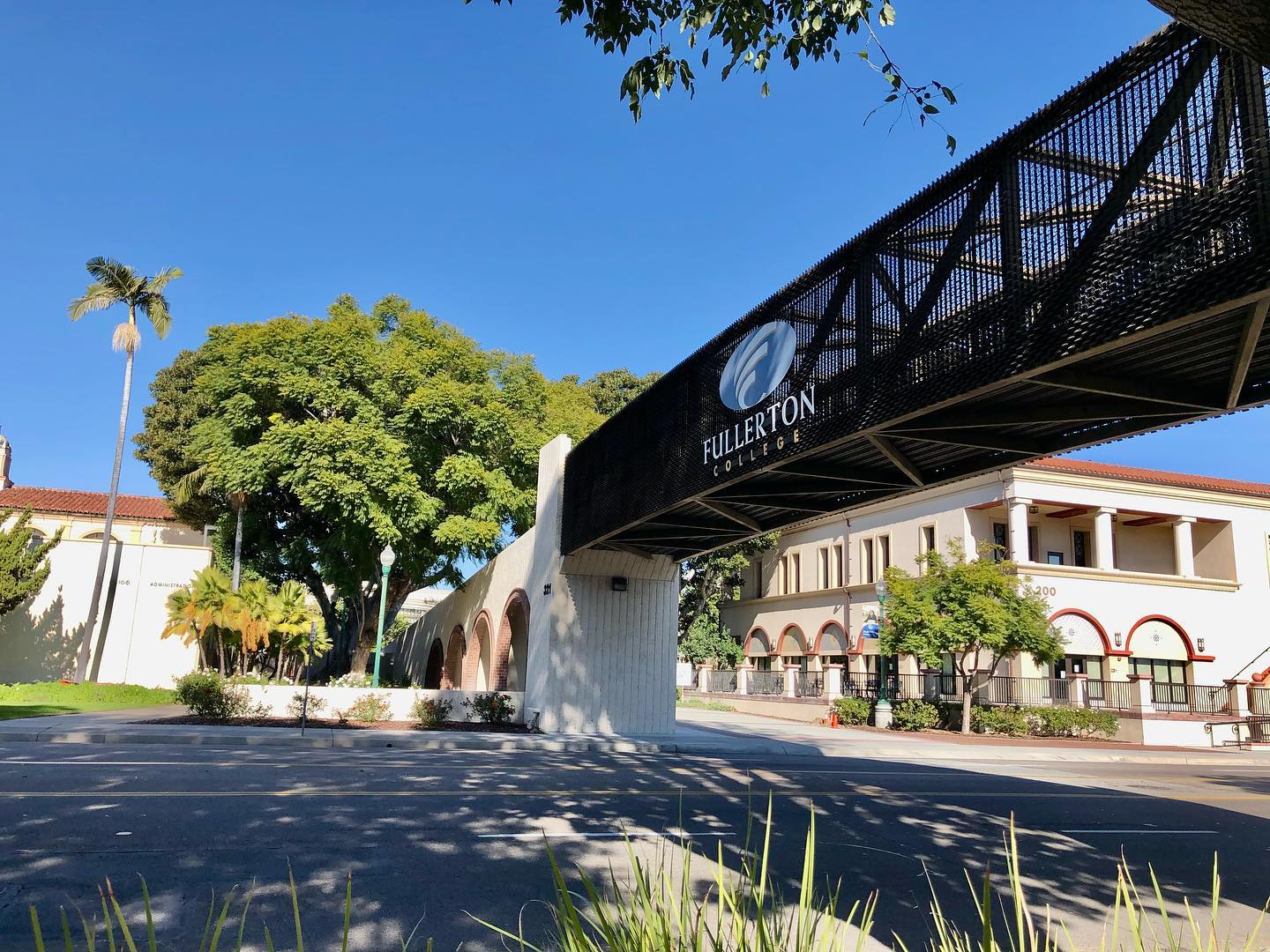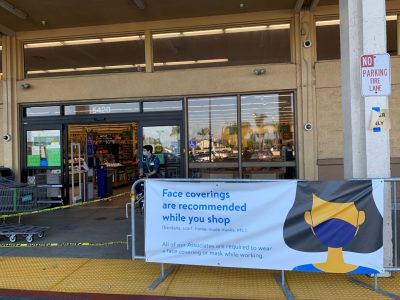
This worker’s position is to track the amount of people in the store, a technique used to monitor occupancy under Walmart’s new policies limiting occupants.
(Photo Credit Aaron Velasquez)
A trip to the grocery store is not the same as it was three months ago. Lines are longer, shelves are emptier, and workers walk around protected by their mask and gloves. Social distancing rules are being played over the speaker and everybody’s wearing a mask. Visits to the grocery store feel more somber and dangerous than before.
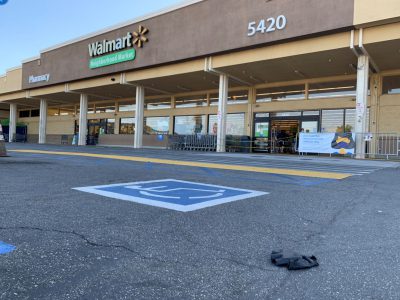
Walmart is one of the biggest national grocery chains and employers of essential workers. Just like many other grocery stores, the company has implemented safety measures such as checking the temperature of employees, providing personal protective equipment, limiting the store’s capacity, and installing sneeze guards at registers. But after several weeks of quarantine, local Walmart employees were still feeling the strain of being an essential worker.
“I’m not even at $15 an hour but here I am coming in every day that I’m scheduled and putting my life and my grandparents’ life on the line,” said deli and bakery associate Hannah Dixon. She points out that employees are on the front lines and risk the health of everyone around them, including their families.
Some grocery stores offer their workers an hourly pay increase due to the dangers of being an essential worker. Local union the United Food and Commercial Workers 324 has negotiated a $2/hour pay raise for employees at Kroger, Ralphs and Food4Less that ran up until May 16. Stater Bros and Albertsons/Vons is extending $2/hour hazard pay until May 31.
Walmart has taken a different approach offering a $300 bonus for full-time employees and $150 for part-time employees, which was paid out on April 2 and has recently scheduled another bonus of the same amount to be paid out June 25.
Walmart Neighborhood Market is a smaller chain than regular Walmart. Because of this there is less checkout space and customers can sometimes find themselves within 6 feet of each other, employees say. The protection for cashiers helps, since they are behind the clear plastic shield and are wearing masks and gloves.
“For the most part the customers are doing their part of following the rules,” said Dixon. Those rules include entering the store through one side and exiting through the other or standing 6 feet apart when in line. But even with all the signage guiding and instructing customers there are still some who ignore the rules and break social distancing, workers say.
When asked for a comment Walmart stated: “The safety of our associates and customers is at the forefront as we navigate this fluid situation. We proactively rolled out many safety measures and we’re not putting a timetable on making modifications but will be thoughtful and deliberate as we monitor changes in cities and states and adapt accordingly.” They added that they “encourage customers to be especially mindful of one another during this unprecedented time and adhere to recommendations that we all use face coverings while in public spaces.”
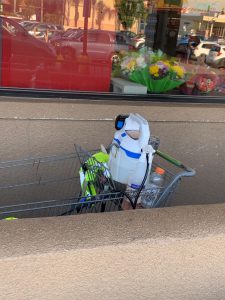
Walmart has also allowed their stores to close early to provide adequate time for the night workers to clean and restock the stores. The restocking doesn’t come easy though as the deliveries are getting heavier and the mask makes it hard to breathe.
Hermel J.R. Baloloy, who works as a Walmart stocker, explained how “Before COVID-19, Saturday is our easiest day. The delivery is very little amount of freight, but right now, there are no more days like that.” As the deliveries arrive throughout the afternoon stockers work to refill the aisles with essential items such as canned goods, toilet paper, and hand sanitizer.
Despite the hours of stocking, employees still have to deal with frustrated customers.
“Some of the stresses that come with working at a grocery store is dealing with customers being angry at us for not having certain products like Lysol, sanitizer, wipes, toilet paper, paper towels,” said Sankika Lacuesta, a produce associate. “We are all stressed about getting COVID because we are more exposed to it. We all have families to come home to too.”
The extra stress that comes with being an essential worker has led to Walmart creating a COVID-19 emergency leave policy. Workers who can not work or feel uncomfortable working can take a leave of absence that won’t affect their attendance record. Usually when an employee calls out without using paid time off they would receive an occurrence on their record and having too many of these can lead to termination. Under this new policy the employees who don’t have paid time off to use, will not face the usual repercussions of calling out.
Dixon talked about how she had to take a day off as everything just had gotten to be too much for her. Baloloy mentioned that his mother, who works at the store with him, was given a two-week leave because she was afraid of contracting the virus.
Because of the extra demand at grocery stores, Walmart has streamlined their usual two-week hiring and training process down to a 24-hour program. Walmart said they have hired 200,000 new associates between March 19 and April 30. While some may be temporary, they say they hope many will transition to stay full time. The newly trained employees work filling roles in the front end of the store such as cashiers or self checkout clerks, or fill new positions such as sanitizing carts. The additional hires are also working in the early mornings and late nights to stock and clean.
Although they have important roles and are facing daily risks, they are not all guaranteed a permanent job after COVID-19.



